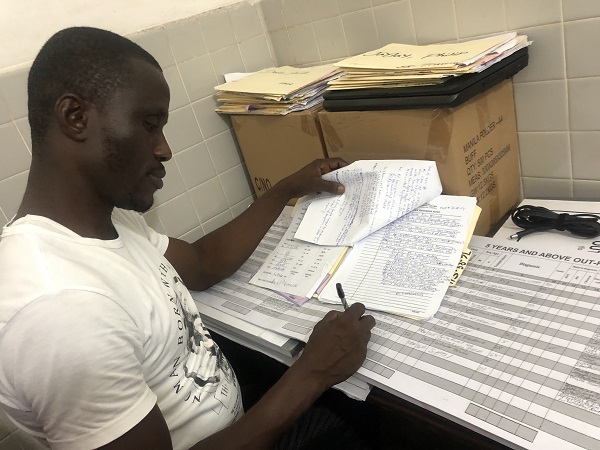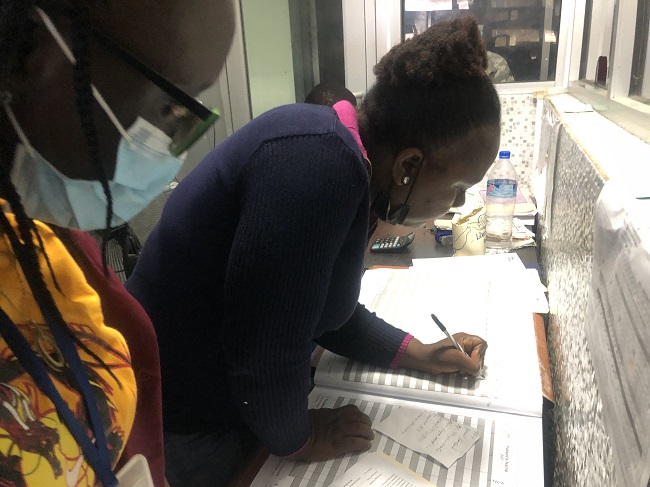Author: Olasunmbo Makinde, Health Strategy and Delivery Foundation
Over the past year, leadership from the John F. Kennedy Medical Centre (JFKMC), Liberia, and the Accelerator have been working together to strengthen the hospital’s systems and management processes across the fiscal, supply chain, and service delivery to improve the quality of care at the hospital.
To strengthen JFKMC’s data reporting culture on the District Health Information Software (DHIS) and improve the availability of service delivery data at the national level, the Accelerator facilitated engagement between JFKMC’s Medical Records team and the Health Management and Information System (HMIS), M&E and Research (HMER) unit of the Ministry of Health (MoH) in Liberia. The group identified bottlenecks to data reporting and devised innovative and definitive activities to abate them. Some of the identified challenges include poor skills and knowledge on the proper use of the data reporting tools, unavailability of the data tools, and overwhelmed staff due to staff shortage.
One practical approach was building the competency of the medical record and nursing staff on the proper use of the HMIS ledgers. This action ensures high-quality data is made available from JFKMC and ultimately available for reporting through Liberia’s DHIS. More so, the availability of high-quality data will improve evidence-based decision-making in the medical center.
The HMER team facilitated a three-day training session from September 8th -10th, 2021. Thirty-six (36) participants (comprised of medical record officers and nursing staff) were drawn from the various service delivery points of the medical center. They were trained on the proper use of fifteen (15) HMIS ledgers used to retrieve patient/client information across the various delivery points of the Maternity and Memorial arms. At the end of every training session on using a particular HMIS ledger, participants were tested on knowledge gained using case studies. Furthermore, the training engaged didactic methods, using practical examples that were context-specific to engage the participants. The participants, in turn, interacted with the facilitators using the question-and-answer sessions of the training to ensure clarity on the training content.

At the end of the training, the MOH made adequate HMIS ledgers available to participants to ensure the newly acquired teachings were adopted for data management and reporting. The MOH team is committed to providing supportive supervision a month post-training to ensure participants adhere to the new practice. Also, to address knowledge gaps resulting from new staff recruitment and transfer, which was earlier identified as an attributing factor to poor data reporting, two master trainers were identified among the medical center staff to attend all the training sessions.


JFKMC’s Medical Records team commenced using the HMIS tools on October 1, 2021, across different service points. During the supportive supervision in mid-October, the Accelerator conducted a spot-check to the Memorial Outpatient Department (OPD) and Emergency Room (ER) to review the use of HMIS tools. The team confirmed that the tools are used in these sections, being properly completed and populated in real-time. The Accelerator will continue to support the JFKMC team, monitor the use of the tools, ensure data quality and facilitate prompt submission of data onto the Liberia DHIS.




